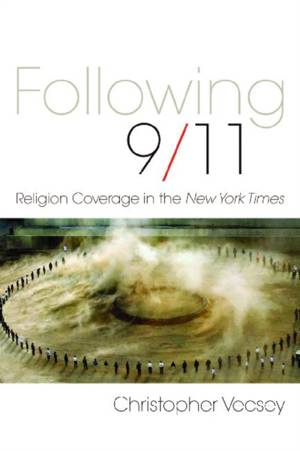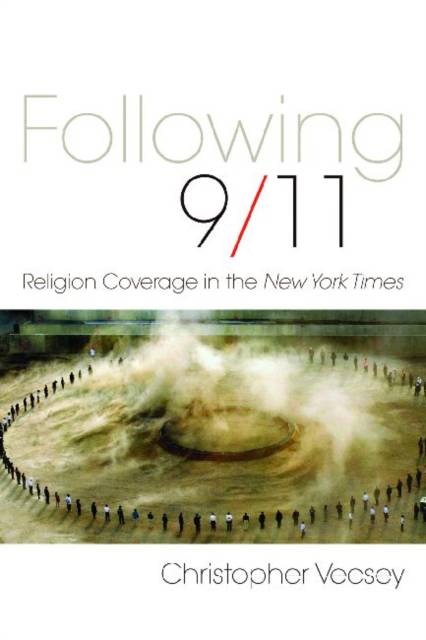
- Afhalen na 1 uur in een winkel met voorraad
- Gratis thuislevering in België vanaf € 30
- Ruim aanbod met 7 miljoen producten
- Afhalen na 1 uur in een winkel met voorraad
- Gratis thuislevering in België vanaf € 30
- Ruim aanbod met 7 miljoen producten
Zoeken
€ 48,45
+ 96 punten
Omschrijving
Following 9/11 examines the religious ramifications of 9/11 and its aftershocks through the lens of the New York Times. After the attacks occurred, the Times turned to its standards of journalistic comprehension and its institutional memory regarding religious phenomena to grasp the news with customary tools of coverage. The events made good copy, surely, but also uncovered persistent themes in the treatment of religion in the newspaper.
Day in, day out, the New York Times is one of the most important news sources for understanding the contemporary world. Drawing from the paper's articles, Vecsey compiles an encyclopedic record of religion in our day. Analysis of religion coverage in the Times, focusing on 9/11 and its upshots, shows not only how the paper reported on the tragedy and its consequences, but also how it presented its conventional religious themes--traditions, diversity, tolerance, institutional organization, interfaith cooperation, ethical judgment, etc.--in the crucible of the crisis, perhaps the most galvanizing event concerning contemporary religion. 9/11 was a political as well as a religious event, and it becomes evident--by probing Times coverage--how religion and politics have particularly defined one another since 2001. Vecsey draws attention to the volatile public phrases "culture wars" and "clash of civilizations" to perceive the ways in which 9/11 crystallized and recast those concepts, so important in understanding the political dimensions of religion over the past decade. For years after 2001, in stories related to the tragedy, the Times moved beyond political coverage to the social, the cultural, the artistic, the intellectual, and especially the religious. Above all, however, the paper showed how religion, politics, and journalism define each other in these times following 9/11.Specificaties
Betrokkenen
- Auteur(s):
- Uitgeverij:
Inhoud
- Aantal bladzijden:
- 492
- Taal:
- Engels
Eigenschappen
- Productcode (EAN):
- 9780815609865
- Verschijningsdatum:
- 5/07/2011
- Uitvoering:
- Hardcover
- Formaat:
- Ongenaaid / garenloos gebonden
- Afmetingen:
- 159 mm x 235 mm
- Gewicht:
- 793 g

Alleen bij Standaard Boekhandel
+ 96 punten op je klantenkaart van Standaard Boekhandel
Beoordelingen
We publiceren alleen reviews die voldoen aan de voorwaarden voor reviews. Bekijk onze voorwaarden voor reviews.











